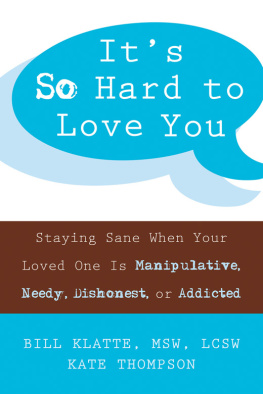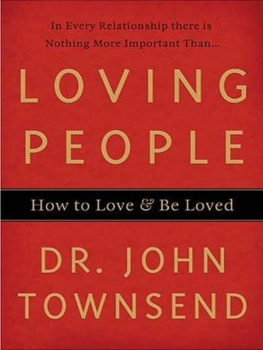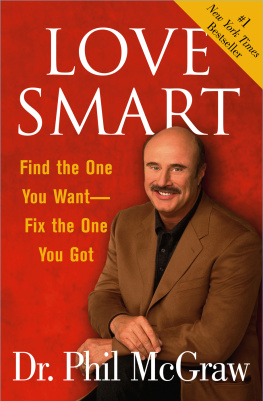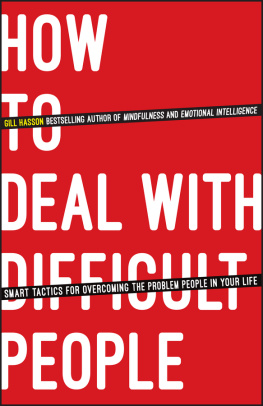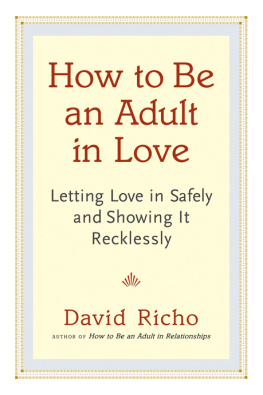Bill Klatte, MSW, LCSW, has been a psychotherapist and social worker for more than thirty-two years. He is currently a psychotherapist with Medical Associates Health Centers near Milwaukee, WI, and has counseled thousands of people individually, in families, and in groups. He gives presentations, workshops, and seminars to professionals as well as laypeople on such topics as parenting, anger management, and self-growth.
Kate Thompson is a writer, educator, life-skills coach, and editor. She has established and operated four social service programs on Manitoulin Island, Ontario, Canada. She is currently teaching courses in life skills and job preparation and is editing a Native studies curriculum. She has facilitated numerous courses and workshops on sexual assault, family violence, abuse, and personal growth.


This book is dedicated to our family: our mother, Jayne Klatte, and our brothers Richard Prestor and Owen Klatte, for your love, support, intelligence, sense of humor, and artistry. Its been quite a ride... and the ride continues.
Acknowledgments
Thanks first to you, Kate. Im lucky to have you as my sister. This book would not have been possible without your partnership. We even wrote this book together without fighting (much). A testament to your patience! Thank you to my friend Joe Kelly. Your support and encouragement throughout the years has been invaluable to me. I am inspired by your commitment to making this planet a better place for children. Thank you, Joy DiNicola, for all the positive energy and kindness you have shown me over the years.
This book is better because of our Fuerstenau cousins: Karen, Vicki, Jeannie, and Steve. Weve grown up together, and youve always been a consistent and essential part of my life. A special hello to my fantastic grandsons, Mason Holcombe and Aidan Holcombe. You guys rock!
Bill Klatte
My first thanks go to you, Bill, for inviting me to join you in writing this book. Its been a delight and a challenge, and Im so grateful we had a chance to do this. To my sons, Logan, Lucas, and Graham Schinbecklerand all of my patchwork family, near and farthank you for your love, encouragement, and practical suggestions. Dan, you are always here to illuminate my days and remind me why I do what I do.
For all sorts of other help, I wish to thank Mary Nelder, Susan Rheault, Beth Mastin, Fay Becks, and Peter Carter. I appreciate the time, energy, and enthusiasm you shared to help me iron out some of the wrinkles. Thank you, most of all, to the Creator, who brings so many teachers into my life, helping me see the need to let go with loveand then to learn how to do it.
Kate Thompson
We both extend our thanks to our agent, Robin Dellabough of Lark Productions, and Melissa Kirk, our acquisitions editor at New Harbinger Publications, for your insightful help and determination to move this book forward.
Bill and Kate
Introduction
Do you know someone who is hard to love? Do you get frustrated with that person at times? Maybe often? Are you feeling worried, afraid, angry, or sad? If so, Its So Hard to Love You can help. In this book you will learn that many people care about someone who does things that make him or her hard to love.
What you learn in this book can certainly help you deal with the annoying aunt who pushes her ideas on you, a hurtful teenager, or the best friend who wont stop talking about himselfthose who are rude, inconsiderate, or overly needy. However, the primary purpose of Its So Hard to Love You is to help you handle beloved adults who are really irresponsible, frustrating, hateful, or even borderline criminal. You will learn how to stay sane, even when your problematic loved one has bewildering long-term problems. Youll have a chance to explore ideas and options to help yourself deal more happily with your difficult relative or friend.
Here are examples of situations you might be dealing with:
- Your adult daughter is living with a guy who takes her money and wont let her visit you.
- Your brother keeps getting fired from jobs and cant see that his own behavior is at least part of the problem.
- A longtime friend has called you yet again to borrow money for a weekend at the casino just this once.
- Your sister has an eating disorder that truly frightens the family.
- Your spouses lifelong friend tells lies and takes advantage of your whole family. Your spouse doesnt see it.
- Both your parents drink too much, and youre worried about them. And you dont like to admit it, but youre also worried youll end up taking care of them if they lose everything because of their destructive habits.
- One of your adult sons has attention-deficit disorder and can be exhausting and frustrating to deal with. His presence in your home is making life very hard for the whole family.
- Your father gives you the silent treatment whenever you displease him.
- One of your grown children has physical or emotional problems that make it very difficult for her to handle adult responsibilities. You try to help, but nothing you do seems to make any difference.
These situations, and countless others like them, are daily realities for many people. In fact, you will find many possible variations within the pages of this book. More important, youll find information, practical solutions, and support that will help you deal more successfully with a problematic loved oneno matter what his or her problems are.
Whether you find yourself trying frantically to help, or watching helplessly as they stumble and crash, these folks take a toll on everyone around them. At times, you might feel like youre going crazy. Well, your reactions are completely normal. Most people who care about a difficult friend or relative face similar problems, which can result in:
- Daily stress in the family
- Separation and divorce
- Damage to other relationships
- Financial difficulties
- Physical illness
- Emotional breakdown
- Forgetfulness
- Difficulty concentrating
- Depression
- Troublesome adult children returning home to live
- Involvement with police, lawyers, and the courts
Let Go With Love
Weve found that many people respond in one of two ways when confronted with a loved ones damaging actions. One is to try to rescue the person, and the other is to give up in anger and frustration.
Letting go with love is the middle ground between those two responses. Its a third option that works in relationships with people who are hard to love. Letting go with love does not mean dropping completely out of someones life at one extremeor trying to make them do what you think they should at the other extreme.
Although your situation is probably complicated and unique in many ways, others who live with similar problems have improved their lives by learning to manage their problems in new ways. Our hope in writing this book is to help you learn the two aspects of letting go with love. They are:
- You can accept difficult people without accepting their harmful behavior.
- Taking care of yourself is a loving thing to do that also benefits others.
These principles for living are made up of several smaller ideas and steps that you can practice and learn. We have found them to be helpful and practical in our own lives and in the lives of those we work with.

